Heroin is a powerful, addictive, and deadly drug that is a huge driver behind the United States’ opioid crisis. At any given time, nearly 691,000 people are struggling with a heroin use disorder.[1] If you are addicted to heroin, you know just how challenging it can be to control or stop your drug use. You also know that if you stop using heroin, you will experience flu-like withdrawal symptoms and intense cravings that are likely to lead you right back to the drug. Needless to say, battling heroin addiction can feel hopeless.
Fortunately, there are many top-rated heroin addiction treatment centers in New Jersey that can help you get your life back on track. Here’s what you can expect while seeking treatment for heroin addiction.
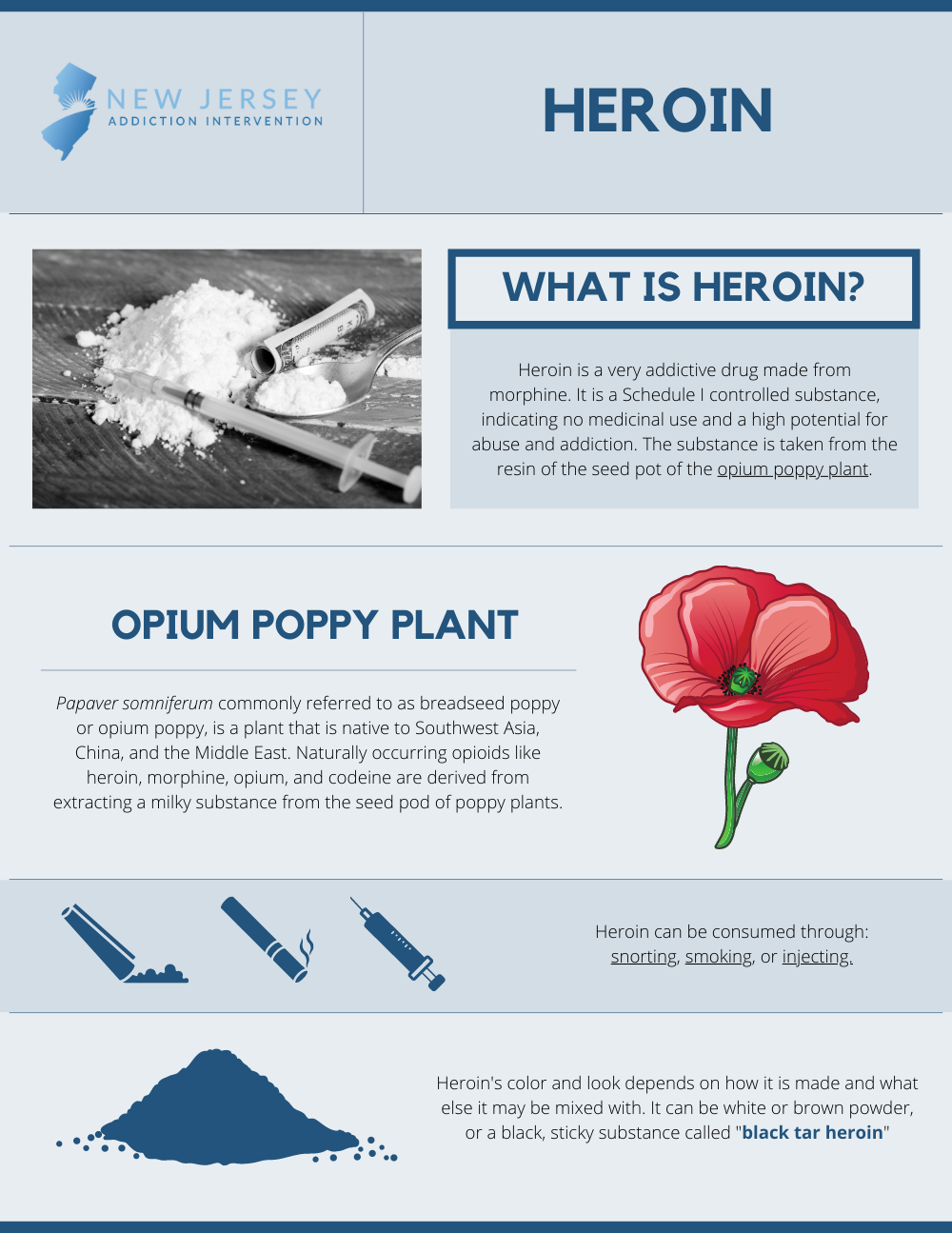
Intake and Assessment
Your journey towards recovery begins the moment you call and speak with an addiction specialist at the treatment center of your choosing. You may have to answer a few general questions about your heroin use and current situation so the specialist can enroll you in the right treatment program. If you have a severe addiction, you may be directed toward inpatient or residential care. However, if your addiction is mild you may be given the option of outpatient care. Most people who are struggling with heroin addiction can benefit most from a highly structured inpatient program.
After arriving at the facility, you will meet with someone from the clinical team for a thorough assessment. This is when you answer detailed questions about your substance abuse, medical history, family medical history, mental health, and more. This information helps the clinical team develop an individualized treatment plan that is based on your unique needs.
If you are exhibiting or expecting symptoms of withdrawal, you will be directed to the detox part of the unit where you detox under medical supervision until you are physically stable enough to begin counseling. If you don’t need detox, you may skip this phase and begin treatment immediately.
Medical Detox for Heroin Addiction
Heroin is very physically addictive, so most people need to spend at least a few days in detox. Although heroin withdrawal is not life-threatening, it can be painful and mentally exhausting. The biggest risk during withdrawal is relapse. However, detoxing in a medical facility can help alleviate your withdrawal symptoms and reduce your risk for relapse.
Heroin addiction treatment centers in New Jersey use medications like buprenorphine, methadone, and clonidine to help manage opioid withdrawal. These medications can reduce the severity of your symptoms, decrease the amount of time you need to spend in detox, and eliminate your psychological cravings.
Heroin detox programs also conduct around-the-clock monitoring, have peer support groups, and nutritional services to help you get healthy again.
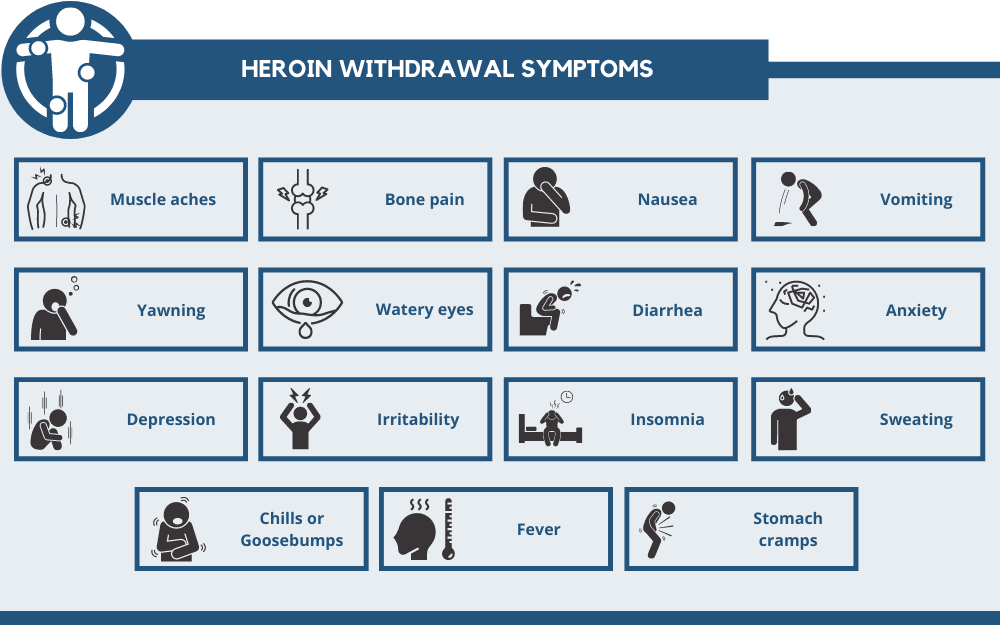
Medication-Assisted Treatment (MAT) for Heroin Addiction
Heroin is one of the most difficult drugs to stop using. The good news is the FDA has approved several prescription medications that can be used alongside behavioral therapy and counseling. This approach is called medication-assisted treatment or “MAT.” MAT is thought to provide a more individualized, comprehensive, and “whole-patient” approach.[2]
You can participate in MAT at a residential or outpatient level. Popular medications used in MAT to treat heroin addiction include:
- Suboxone (buprenorphine/naloxone)
- Subutex (buprenorphine)
- Sublocade (buprenorphine)
- Vivitrol (naltrexone)
These prescribed medications help normalize brain chemistry, stop the euphoric effects of opioids, alleviate drug cravings, and normalize body functions. When paired with counseling and peer support, they can help reduce your risk of relapse and opioid overdose in the future.
While taking these medications you will have regular visits with your doctor to discuss your progress, medication adherence, side effects, and any concerns you may have. Your doctor may adjust your dose, if needed, and taper you off of your medication if you decide to do so. There is no maximum duration of MAT, and some patients will stay on maintenance treatment indefinitely.[3]
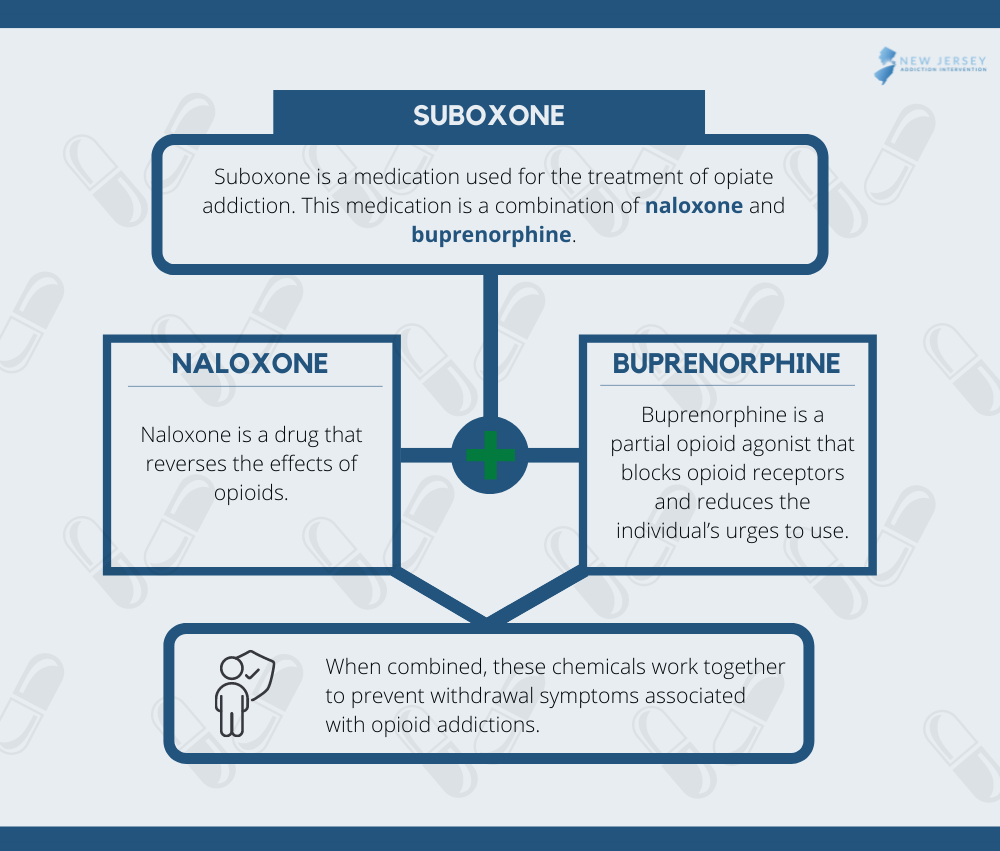
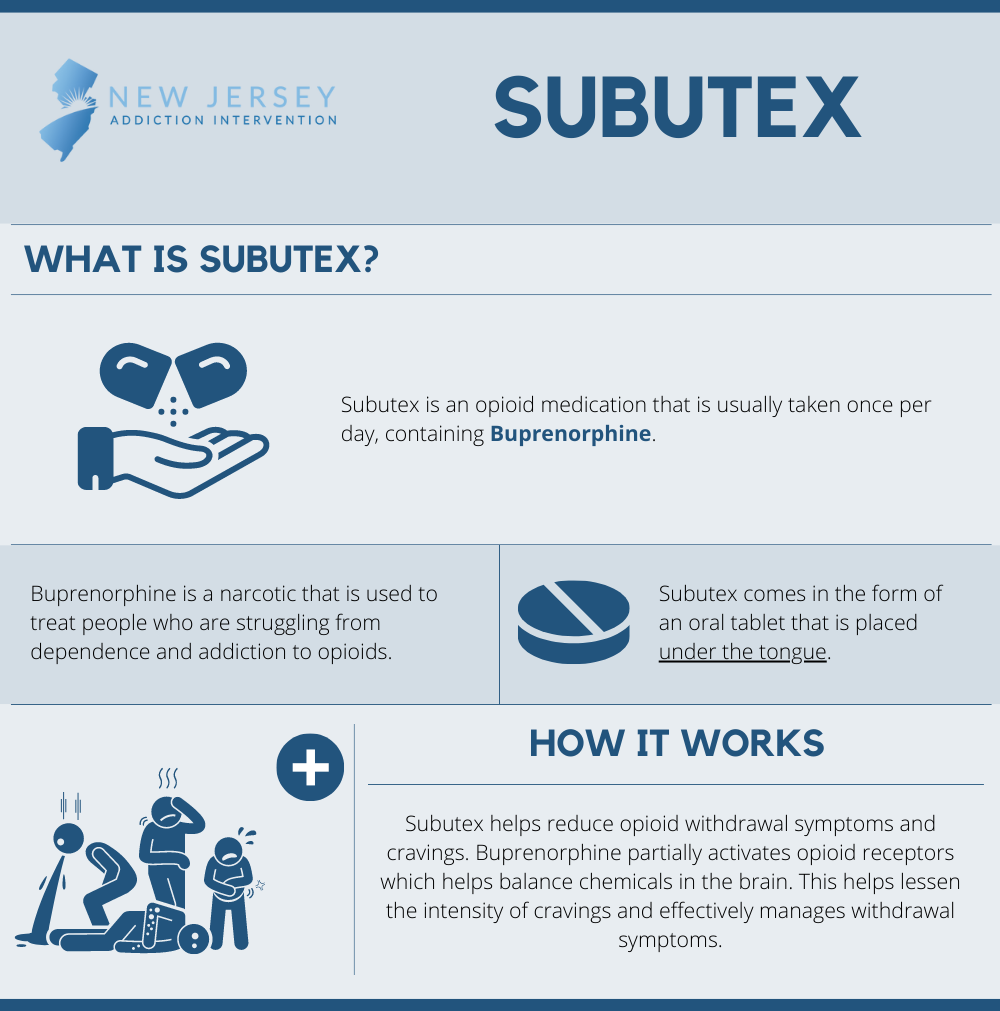
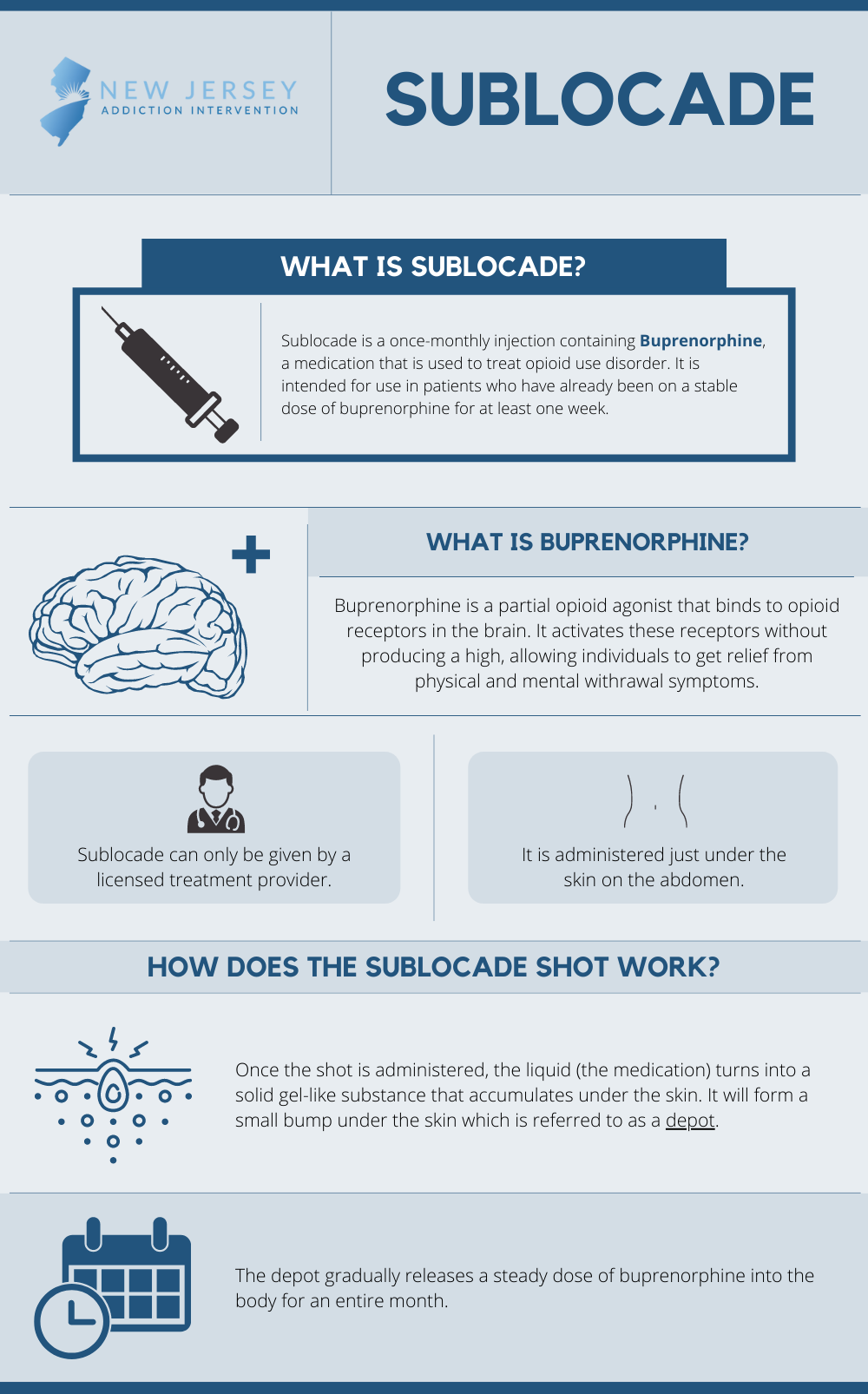
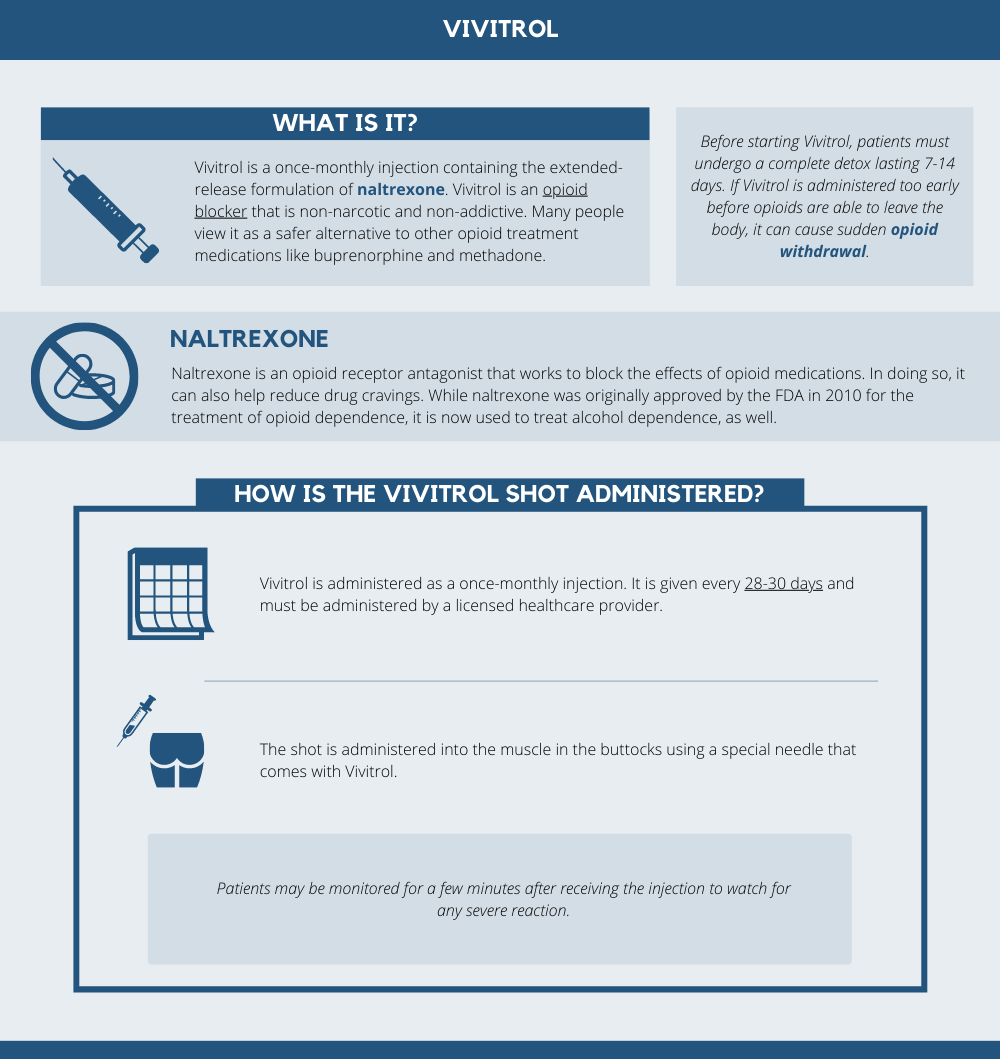
Behavioral Therapy, Counseling, and Peer Support
Pharmacological treatments can significantly reduce the temptation to use heroin, but they do not address the underlying causes of your addiction or equip you with practical relapse prevention skills. That’s what behavioral therapy, counseling, and peer support are for.
There are a variety of effective therapeutic treatments available to you during heroin addiction treatment in New Jersey. Treatments may be offered in residential or outpatient settings. Two popular behavioral therapies used during heroin rehab include:[4]
- Cognitive Behavioral Therapy (CBT) – A form of talk therapy that aims to reveal and modify unhealthy behaviors and teach you healthy coping skills that support sobriety.
- Contingency Management (CM) – A voucher-based system where you are rewarded for negative drug tests or accomplishments in your recovery.
You may also participate in a variety of group counseling sessions touching on the following topics:
- Family dynamics
- Addiction education
- Life skills/healthy living
- Coping skills
- Relapse prevention strategies
- Triggers
- Trauma
- Mental health
These counseling sessions will help you understand the causes of your addiction and how you can work to overcome it. They can also provide you with valuable insight into yourself, your thought patterns, your emotions, and your behaviors.
A major component of heroin rehab and recovery is peer support. While treatment is only temporary, peer support can help you sustain sobriety for a lifetime. You can find peer support in your group therapy sessions, alumni program, or 12-Step fellowship.
Before you are discharged from rehab, you will work with your substance abuse counselor to create a detailed relapse prevention plan and aftercare program. This may consist of sober living, outpatient rehab, continued counseling, medication management, 12-Step participation, alumni services, and more.
Find Heroin Addiction Treatment in New Jersey Today
Overcoming heroin addiction isn’t as scary as it seems when you have a team of addiction professionals by your side. Here at New Jersey Addiction Intervention, our team is here to help you find the right treatment program for you. If you or a loved one are struggling with addiction, contact us today. We’ll verify your insurance, evaluate your needs, and connect you with a top-rated heroin addiction treatment program near you.
References:
- https://www.drugabuse.gov/publications/research-reports/heroin/scope-heroin-use-in-united-states
- https://www.samhsa.gov/medication-assisted-treatment
- https://www.fda.gov/drugs/information-drug-class/information-about-medication-assisted-treatment-mat
- https://www.drugabuse.gov/publications/research-reports/heroin/what-are-treatments-heroin-use-disorder
Medically Reviewed: December 27, 2021

All of the information on this page has been reviewed and verified by a certified addiction professional.

